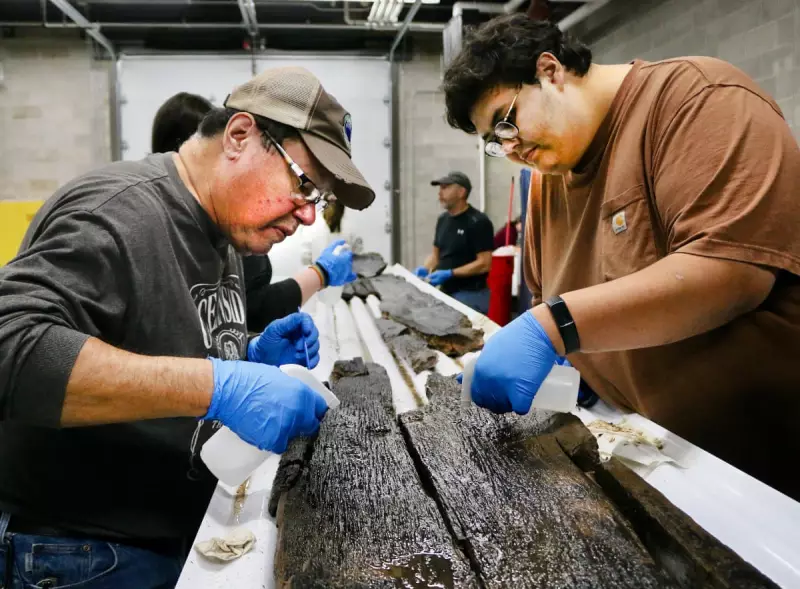
Archaeologists have made an extraordinary discovery in the waters of Lake Mendota, Wisconsin, unearthing what appears to be a prehistoric Indigenous canoe 'parking lot' that served travellers for thousands of years.
A Submerged Archaeological Treasure
The Wisconsin Historical Society announced this week that researchers have mapped the locations of sixteen submerged canoes resting on the lake bed of Lake Mendota in Madison. The remarkable find represents one of the most significant Indigenous archaeological discoveries in recent North American history.
Tamara Thomsen, Wisconsin's maritime archaeologist, described the site as lying near ancient Indigenous trails, suggesting the location served as a communal storage area where travellers could leave their watercraft while continuing their journeys on foot. "It's a parking spot that's been used for millennia, over and over," Thomsen explained, comparing it to modern-day bicycle sharing schemes.
Revealing Millennia of Indigenous History
The discoveries began modestly in 2021 when archaeologists found a 1,200-year-old canoe submerged in 24 feet of water. The following year brought even more remarkable finds: a 3,000-year-old canoe, a 4,500-year-old specimen beneath it, and a 2,000-year-old canoe nearby.
This concentration of ancient watercraft alerted researchers that they had stumbled upon something far more significant than isolated finds. Working with University of Wisconsin-Madison professor Sissel Schroeder, along with preservation officers from the Ho-Chunk Nation and Bad River Band of Lake Superior Chippewa, Thomsen has since located twelve additional canoes.
Radiocarbon dating has revealed the oldest canoe dates back an astonishing 5,200 years, making it the third oldest canoe ever discovered in eastern North America. Only two canoes found in Florida predate it, with the oldest being approximately 7,000 years old.
Ancient Climate Patterns and Cultural Significance
Wisconsin experienced a prolonged drought beginning around 7,500 years ago that lasted until approximately 1000 BC. During this period, the area where the canoes were discovered would have been much shallower - only about 4 feet deep - creating an ideal disembarkation point for foot travel.
Dr Amy Rosebrough, the state archaeologist, suggested travellers may have been headed toward Lake Wingra on Madison's south side, an area of particular spiritual significance to the Ho-Chunk Nation who view one of its springs as a portal to the spirit world.
"The canoes remind us how long our people have lived in this region and how deeply connected we remain to these waters and lands," said Bill Quackenbush, the Ho-Chunk's tribal preservation officer, in an official statement.
Thomsen speculates that given the drought began 7,500 years ago and archaeologists are finding canoes layered beneath others, there may be even older examples waiting to be discovered - potentially including a 7,000-year-old canoe that would reveal earlier Indigenous use of the lake.
Though Thomsen typically works on Great Lakes shipwrecks, she dedicates one day weekly to the canoe project, describing it as the most impactful work of her career. "I think I've shed more tears over this," she admitted. "Talking with the Indigenous people, sometimes I sit here and just get goose bumps. Each one of these canoes gives us another clue to the story."





